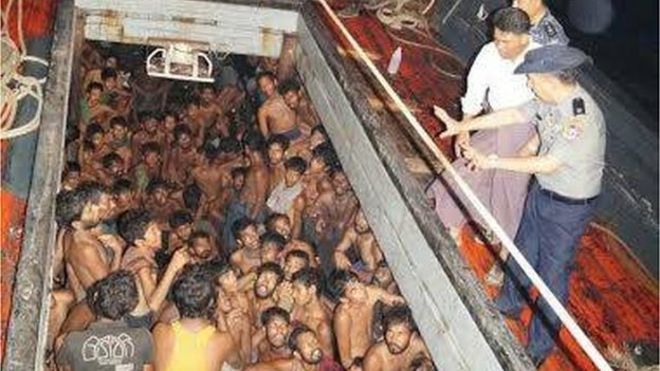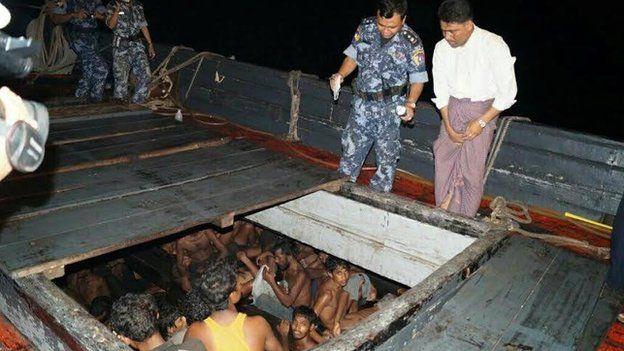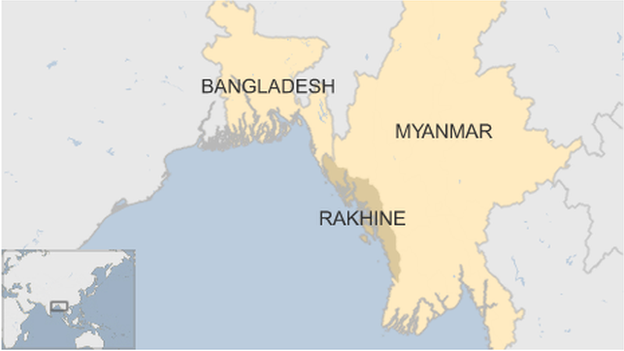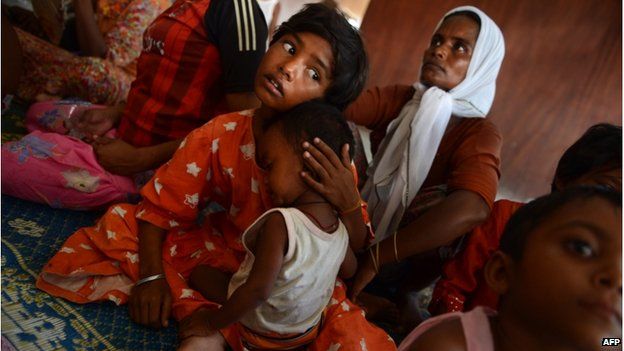Myanmar has rescued two migrant boats holding more than 200 people in its waters near the border with Bangladesh.
It was Myanmar’s first such rescue. It has faced strong criticism for not doing enough to aid those stranded at sea and stem the migrant crisis.
Most stranded migrants are Rohingya fleeing persecution in Myanmar; others are economic migrants from Bangladesh.
More than 3,000 have landed in neighbouring Malaysia, Thailand and Indonesia, which have offered aid.
Myanmar, also known as Burma, said these migrants were rescued on Friday morning.
Photos posted on the information ministry’s Facebook page showed scores of bare-chested men crammed in the hull of at least one boat.
The posts referred to the migrants as “Bengalis” – Myanmar’s term for illegal Bangladeshi migrants – and said the boats were in Bangladeshi waters off Myanmar’s Rakhine state, waiting for more to arrive in smaller vessels.
The government has promised humanitarian assistance to those who have suffered at sea.
But ministers have stressed that only verified Myanmar citizens will be allowed to stay. Myanmar insists that these latest stranded migrants are not.
The BBC’s Jonah Fisher in Yangon said that for several weeks it was clear that at least five traffickers’ boats were in limbo just off the Burmese coast, unwilling to cross the Andaman Sea – but equally reluctant to let their victims go for free.
Countries agree
The rescue came after Myanmar officials met Malaysian and Indonesian foreign ministers, and the US Deputy Secretary of State Antony Blinken, on Thursday to discuss the situation.
Malaysia also began searching for migrant boats on Friday, a day after Prime Minister Najib Razak announced that they would conduct rescue missions.
A US military spokesman told the Associated Press news agency that it was prepared to assist in patrols in the area.
Malaysia and Indonesia have agreed to stop towing boats out to sea and will provide temporary shelter to those who have landed.
Thailand only said it would stop rejecting boats.
Are you or is someone you know affected by the issues in this story? Email your experiences to haveyoursay@bbc.co.uk
Source: BBC












